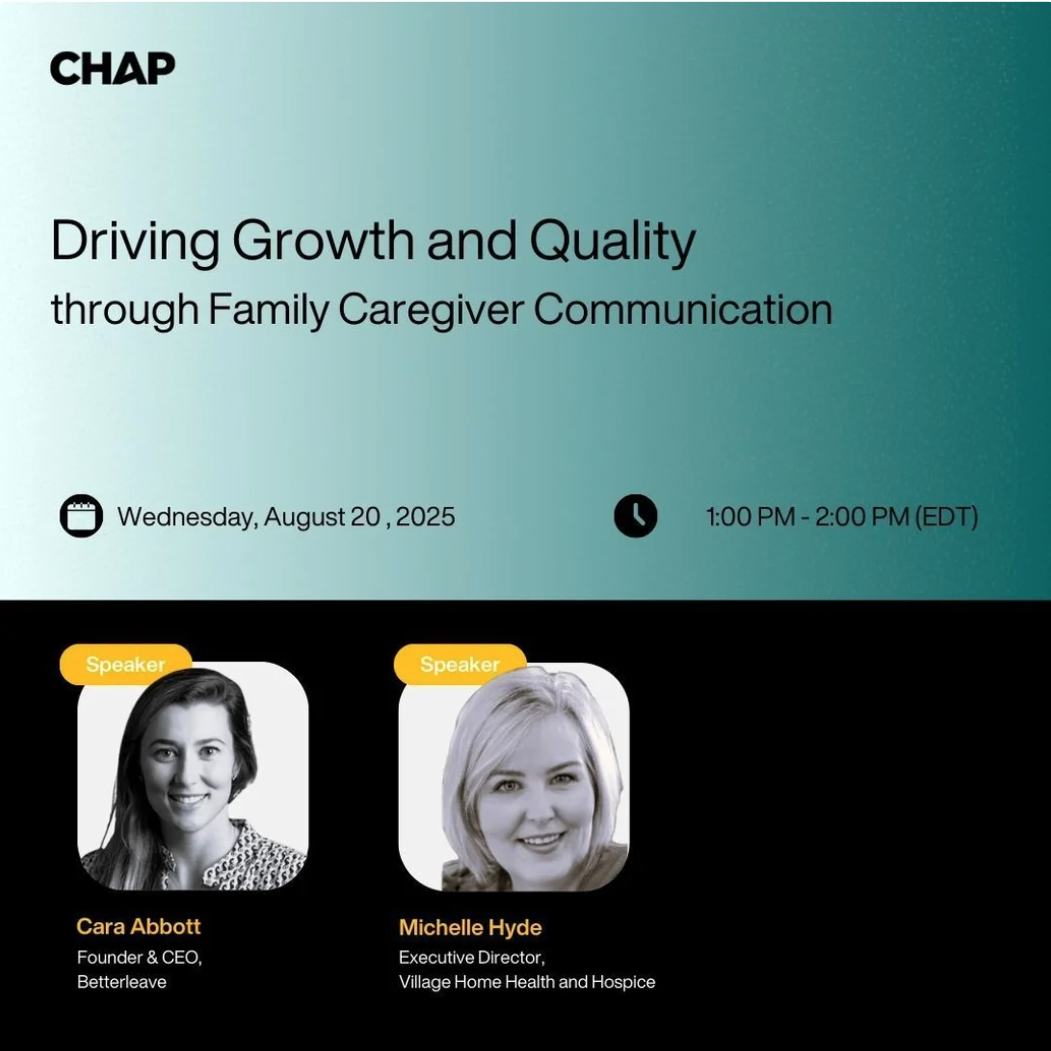By Betterleave's Chief Medical Officer, Alice Greene
Hospice and healthcare providers have a crucial role in offering continued support to grieving families. Understanding and embracing this responsibility not only helps families heal but also strengthens the trust and reputation of the hospice facility.
The Journey Through Grief
Grief is a deeply personal and often prolonged experience and it can take years for individuals to process and come to terms with their loss. The initial weeks and months following a death are just the beginning of this journey. While the world around them may seem to move on, those grieving often find themselves struggling with waves of sadness, confusion, and longing.
The Role of Hospice in Bereavement Care
Hospice care is not only about tending to the needs of those at the end of their life but also about supporting the loved ones left behind. Hospice facilities can and should distinguish themselves by offering comprehensive bereavement care that extends well beyond the initial stages of grief.
Emotional Support Resources
Ongoing emotional support is vital for those navigating grief. This can include one-on-one counseling, support groups, and therapy sessions. These resources provide a safe space for individuals to express their feelings, share their experiences, and receive guidance from professionals who understand the grieving process. Support groups, in particular, offer a sense of community and connection, reminding bereaved individuals that they are not alone in their journey.
Administrative Assistance
The period following a loved one's death is often filled with administrative tasks that can feel overwhelming. Hospice providers can offer invaluable assistance by helping families manage these responsibilities. This might include support with legal documents, navigating insurance claims, or understanding the benefits they are entitled to. By alleviating some of these burdens, hospices help families focus more on their emotional healing.
Continued Support
Grief does not have a set timeline, and neither should the support offered by hospice providers. Continued check-ins, anniversary remembrances, and follow-up calls can make a significant difference in the lives of grieving families. Offering memorial services or remembrance events allows families to honor their loved ones while staying connected to the supportive hospice community.
Legal and Ethical Obligations
Hospice facilities are not only ethically but also legally required to provide bereavement support for at least a year following a patient's death. This legal requirement ensures that families have access to the necessary resources and support as they navigate the initial and often most challenging year of grief.
Building a Legacy of Compassion
Compassionate and comprehensive bereavement care helps families heal, but it also leaves a lasting impression. Families who feel supported and cared for are more likely to remember the hospice facility positively and share their experiences with others. Word of mouth and personal referrals are powerful tools in building a hospice's reputation and trust within the community.
Hospice and healthcare providers play a crucial role in this journey, offering the emotional, administrative, and ongoing support that grieving families need. By committing to comprehensive bereavement care, hospices not only fulfill their legal obligations but also build a legacy of compassion and trust that extends far beyond the final goodbye.
For families navigating grief, the knowledge that they are not alone and that support is available can make all the difference. And for hospice providers, this commitment to care is what sets them apart and creates a lasting impact on the lives they touch.




